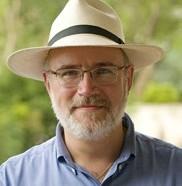
by Rob Radtke ’82
One of the great privileges of my work is to travel around the world to visit the programs of Episcopal Relief & Development, the international development agency of the Episcopal Church.
We are the stewards of sacrificial generosity from around the United States, and we take very seriously the responsibility we have to our friends and supporters to ensure that their gifts are used as they intend. My travel helps me carry out that responsibility.
Recently, when I was in northern Ghana, I visited about six different villages to assess our programs and to learn about some of the challenges facing the communities where we are working in partnership with the Anglican Diocesan Development and Relief Agency.
The particular villages that I was visiting on this trip are participating in the NetsforLife program, Episcopal Relief & Development’s flagship malaria prevention partnership. I was learning about the challenge that malaria poses to families with young children and pregnant women.
Most visits include a tour of the community and this one was no exception. People are always warm and welcoming, despite the challenges that they face. Virtually every family I visited had lost a child to malaria.
Once the tour is complete, I am usually offered the seat of honor (often the only chair in the village) at a “durbar,” which is a gathering of all the people in the village and their elders and local chief.
Drama is a critical way to teach people about malaria and how to prevent it. Members of the community often put on a performance of their malaria education play—which generally stars the local village hams and gets a lot of laughs. It is followed by heartfelt testimonials about how
NetsforLife has changed and transformed life in the community.
Once we have all participated in the celebratory dances and songs, things normally close with a few brief remarks of thanks from the community members.
In the last village visit I made, I had just delivered my formal remarks of thanks and greetings, and I was gathering up my hat and camera to make my way to the vehicle to leave.
At that point the chief of the village came forward to say that he had a presentation to make to me on behalf of the entire community. I was a bit taken aback. This was very different from what I had experienced previously during program visits.
As I sat down, the chief said that although they had a gift to give to me, they were very embarrassed as it was such a small and poor gift.
He told me that they had wanted to give me an elephant as a gesture of thanks as that was the grandest gift they could imagine
presenting to show how important the malaria nets were to their community.
However, they were too poor to give me an elephant. (I was trying to imagine how I was going to get the elephant back to New York City!)
Instead, all of the family heads of the village had met that morning to discuss what would be the most valuable thing that they could give me to show their gratitude for all that had happened in their village as a result of the net distribution.
They had decided to collect all of the eggs laid that day and present them to me in a bowl. He explained that the eggs represented the entire village’s wealth for that day, and while it wasn’t very much, it was everything they had and they wanted to share it with me.
I had come to Ghana to take stock of the impact of our programs, and I was left humbled by the generosity and abundance that had grown out of such apparent scarcity.
Post Script is a department that opens windows into the lives and experiences of your fellow Milton alumni. Graduates may author the pieces, or they may react to our interview questions. Opinions, memories, explorations, reactions to political or educational issues are all fair game. We believe you will find your Milton peers informative, provocative and entertaining. Please email us with yourreactions and your ideas at cathy_everett@milton.edu.



